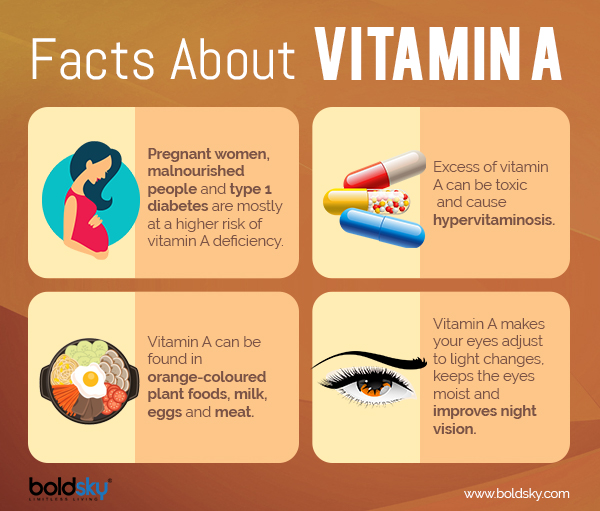Just In
- 9 min ago

- 6 hrs ago

- 7 hrs ago

- 11 hrs ago

Don't Miss
- Movies
 Crew Box Office Collection Day 21: Kareena's Film Barely Sees Growth; Crosses Rs 70 Cr In 3 Weeks
Crew Box Office Collection Day 21: Kareena's Film Barely Sees Growth; Crosses Rs 70 Cr In 3 Weeks - Finance
 8 Tata Group Stocks To Buy That Will Pay Dividends Soon, Q4 In Focus; Are You Invested?
8 Tata Group Stocks To Buy That Will Pay Dividends Soon, Q4 In Focus; Are You Invested? - Sports
 Australia Women Cricketer Ashleigh Gardner gets engaged to partner Monica Wright
Australia Women Cricketer Ashleigh Gardner gets engaged to partner Monica Wright - News
 Iran Embassy In Paris Cordoned Off Following Reports Of Suspect With Explosives
Iran Embassy In Paris Cordoned Off Following Reports Of Suspect With Explosives - Automobiles
 Suzuki Swift Hatchback Scores 4 Star Safety Rating At JNCAP – ADAS, New Engine & More
Suzuki Swift Hatchback Scores 4 Star Safety Rating At JNCAP – ADAS, New Engine & More - Education
 NLSIU Announces the Rajiv K. Luthra Foundation Grant
NLSIU Announces the Rajiv K. Luthra Foundation Grant - Technology
 Dell Introduces AI-Powered Laptops and Mobile Workstations for Enterprises in India
Dell Introduces AI-Powered Laptops and Mobile Workstations for Enterprises in India - Travel
 Journey From Delhi To Ooty: Top Transport Options And Attractions
Journey From Delhi To Ooty: Top Transport Options And Attractions
Vitamin A: Health Benefits, Types, Dosage & Risk
Vitamin A is an umbrella term which refers to a group of fat-soluble compounds. This vitamin is a potent antioxidant too, which is necessary for human health. Vitamin A plays a key role in keeping your skin clear and healthy and it prevents diseases, boosts immunity and even promotes bone health. This article will explain the benefits of vitamin A.
What Is Vitamin A?
Vitamin A is a fat-soluble vitamin as well as a powerful antioxidant. It plays a vital role in neurological function, maintains vision, promotes healthy skin and helps the heart, lungs, kidneys and other organs to function correctly and much more. Like almost all the other antioxidants, vitamin A is involved in lowering inflammation while fighting against free radical damage.

Types Of Vitamin A
Vitamin A is mainly found in 2 forms - preformed vitamin A, also known as the active form of vitamin A which includes retinol, retinal and retinoic acid, and provitamin A carotenoids, also known as the inactive form of vitamin A which includes beta-carotene, alpha-carotene and beta-cryptoxanthin.
Retinol is an active form of vitamin A, which comes from animal products (meat, chicken, fish and dairy) that is directly used by the body. And beta-carotene is obtained from colourful fruits and vegetables in the form of pro-vitamin carotenoids. Beta-carotene needs to be first converted to retinol in order to be utilized by the body [1] .

Sources Of Vitamin A [2]
The most common type of vitamin A is beta-carotene, a carotenoid which is found in these rainbow-coloured foods.
- Apricot
- Cantaloupe
- Pink grapefruit
- Carrot
- Sweet potato
- Pumpkin
- Winter squash
- Broccoli
- Dark green leafy vegetables
- Mango
- Papaya
- Zucchini
- Bell pepper
Another form of vitamin A retinol only comes from animal sources which are as follows:
- Meat liver
- Fatty fishes like salmon and herring
- Cheese, butter and milk
- Eggs
Health Benefits Of Vitamin A
1. Protects the eyes
One of the primary benefits of vitamin A is it helps in preserving eyesight and boosts vision as it is a critical component that activates rhodopsin.
Beta-carotene plays a role in preventing macular degeneration which is one of the leading causes of blindness. A study published in the Journal Archives of Ophthalmology, found that people over the age of 50 with macular degeneration who consumed beta-carotene reduced their risk of developing advanced macular degeneration [3] .
2. Boosts the immune system
Vitamin A plays a very crucial role in supporting immune health and is beneficial for warding off illnesses and infections by increasing the production and function of white blood cells, which help trap and remove the bacteria and other pathogens from your bloodstream. The deficiency of vitamin A increases the chances of weakening the immune system and alters the functioning of immune cells. This increases your risk of infections and delays your recovery when you are sick [4] .
3. Reduces inflammation
Beta-carotene works as a powerful antioxidant in the body, which helps in the reduction of harmful free radicals and prevents oxidative damage to cells while controlling inflammation. As inflammation is the root cause of many chronic diseases ranging from cancer to heart disease and diabetes, beta-carotene has far-reaching effects on health [5] .
3. Lowers the risk of certain cancers
Vitamin A plays an integral role in preventing cancer, according to a study 'Retinoids and their receptors in cancer development and chemoprevention' published in the 'Critical reviews in oncology/hematology' [6] . Having high amounts of vitamin A has been linked to a lowered risk of certain cancers like lung cancer, bladder cancer and cervical cancer.
4. Reduces skin problems
Skin problems like blackheads, painful spots on the face, back and chest occur when the sebaceous glands get clogged with dead skin and oils. Dermatologists often prescribe vitamin A to fight acne and wrinkles for its potent skin-enhancing properties. A study found that applying retinol on the skin improved fine lines and wrinkles significantly. It is because of the anti-inflammatory properties of vitamin A known as retinaldehyde [7] .

5. Promotes heart health
A study shows that vitamin A, carotenoids, and provitamin A carotenoids can help lower cholesterol levels and reduce the risk of cardiovascular disease [8] .
6. Prevents urinary stones
Urinary stones cause symptoms like frequent urination, discomfort, abdominal pain, and bloody urine. A study conducted by the National Institute of Nutrition's Department of Biophysics in India showed the association between low vitamin A levels and formation of urinary stones. The result was low levels of vitamin A in the body had higher levels of calcium oxalate crystals in the urine which indicate that there is a much higher risk of formation of urinary stones [9] .
7. Promotes bone health
You have always thought that calcium and vitamin D supports bone health, but there is another vitamin that is also a crucial component of bone growth as well and that's vitamin A.
Consumption of sufficient amounts of vitamin A is necessary for bone growth and development and a deficiency of this vitamin leads to poor bone health. A study published in the International Journal of Environmental Research and Public Health showed that people with low levels of vitamin A are at a higher risk of bone fractures compared to people with healthy levels of vitamin A [10] .
8. Helps in reproduction and development
In particular, vitamin A is considered one of the best vitamins for women because it helps in the normal growth and development of embryos during pregnancy. Pregnant women also get additional benefits of vitamin A by aiding in the growth and development of many organs and structures of the unborn child which includes the nervous system, heart, skeleton, eyes, kidneys, pancreas and lungs.
According to the American Pediatrics Association, beta-carotene is considered vital in the prevention of developmental disorders for pregnant or breastfeeding women.
Deficiency in Vitamin A causes dry lips, weak immunity, stunted growth in children, night blindness, xerophthalmia, Bitot's spots, thick or scaly skin.
Recommended Daily Intake Of Vitamin A
The recommended intake of vitamin A depends on age, gender and reproductive status. According to the University of Maryland Medical Center, for adult women, the Dietary Reference Intake (DRI) is 700 mcg and for adult men, it's 900 mcg per day.
What Is Vitamin A Toxicity?
Vitamin A becomes toxic when consumed in excessive amounts and leads to skin changes, brittle nails, hair loss, vision changes, gum disease, vomiting, irritability, etc.
The National Institute of Health suggests the following amounts of vitamin A to be toxic for the following age groups.
- 600 mcg per day up to 3 years
- 900 mcg per day from 4 to 8 years
- 1,700 mcg per day from 9 to 13 years
- 2,800 mcg per day from 14 to 18 years
- 3,000 mcg per day from 19 years and over
To Conclude...
Vitamin A is essential for performing many important functions in the body from maintaining good vision, helping the growth and development of babies in the womb and lots more. However, too much of vitamin A could have negative effects on your health. The best way to get the right balance of vitamin A is by eating vitamin A rich foods and avoiding vitamin A supplements.
- [1] Tang G. (2010). Bioconversion of dietary provitamin A carotenoids to vitamin A in humans. The American journal of clinical nutrition, 91(5), 1468S–1473S.
- [2] Ross A. C. (2010). Diet in vitamin A research.Methods in molecular biology (Clifton, N.J.),652, 295–313.
- [3] Age-Related Eye Disease Study Research Group. (2001). A randomized, placebo-controlled, clinical trial of high-dose supplementation with vitamins C and E, beta carotene, and zinc for age-related macular degeneration and vision loss: AREDS report no. 8.Archives of ophthalmology,119(10), 1417.
- [4] Sommer, A., Katz, J., & Tarwotjo, I. (1984). Increased risk of respiratory disease and diarrhea in children with preexisting mild vitamin A deficiency.The American journal of clinical nutrition,40(5), 1090-1095.
- [5] Hunter P. (2012). The inflammation theory of disease. The growing realization that chronic inflammation is crucial in many diseases opens new avenues for treatment.EMBO reports,13(11), 968–970.
- [6] Sun, S. Y., & Lotan, R. (2002). Retinoids and their receptors in cancer development and chemoprevention.Critical reviews in oncology/hematology,41(1), 41-55.
- [7] Kafi, R., Kwak, H. S. R., Schumacher, W. E., Cho, S., Hanft, V. N., Hamilton, T. A., ... & Voorhees, J. J. (2007). Improvement of naturally aged skin with vitamin a (retinol).Archives of Dermatology,143(5), 606-612.
- [8] Palace, V. P., Khaper, N., Qin, Q., & Singal, P. K. (1999). Antioxidant potentials of vitamin A and carotenoids and their relevance to heart disease.Free Radical Biology and Medicine,26(5-6), 746-761.
- [9] Kancha, R. K., & Anasuya, A. (1992). Contribution of vitamin A deficiency to calculogenic risk factors of urine: studies in children.Biochemical medicine and metabolic biology,47(1), 1-9.
- [10] Zhang, X., Zhang, R., Moore, J., Wang, Y., Yan, H., Wu, Y., ... & Li, R. (2017). The effect of vitamin A on fracture risk: a meta-analysis of cohort studies.International journal of environmental research and public health,14(9), 1043.
-
 wellnessFather’s Day 2021: Benefits And Dietary Guidelines For Men Over 50 On Keto Diet
wellnessFather’s Day 2021: Benefits And Dietary Guidelines For Men Over 50 On Keto Diet -
 wellnessWhat Are The Healthy Food For Teenage Girls?
wellnessWhat Are The Healthy Food For Teenage Girls? -
 prenatal11 Vitamin A Rich Foods For Pregnant Women
prenatal11 Vitamin A Rich Foods For Pregnant Women -
 wellness12 Best Foods To Reduce The Risk Of Glaucoma
wellness12 Best Foods To Reduce The Risk Of Glaucoma -
 wellnessCan Vitamin A Deficiency Cause Blindness?
wellnessCan Vitamin A Deficiency Cause Blindness? -
 nutrition10 Foods High In Beta-Carotene You Didn't Know
nutrition10 Foods High In Beta-Carotene You Didn't Know -
 nutrition12 Healthy Facts About Sweet Potatoes You Should Know
nutrition12 Healthy Facts About Sweet Potatoes You Should Know -
 nutritionBest Vitamin-A Foods That Are Healthy For The Skin & Also Prevent Infection
nutritionBest Vitamin-A Foods That Are Healthy For The Skin & Also Prevent Infection -
 wellnessVitamin A, High-Fibre Diet Keeps Food Allergies At Bay: Study Reveals
wellnessVitamin A, High-Fibre Diet Keeps Food Allergies At Bay: Study Reveals -
 healthDo You Keep A Clove Of Garlic Under Pillow? Not To Keep Vampires At Bay, There May Be Scientific Reasons
healthDo You Keep A Clove Of Garlic Under Pillow? Not To Keep Vampires At Bay, There May Be Scientific Reasons -
 healthGet Your Groove On: 5 Health Benefits Of Dancing To Afro Beats
healthGet Your Groove On: 5 Health Benefits Of Dancing To Afro Beats -
 healthIndigenous Delicacies: 5 Rare Indian Wild Foods That Are So Healthy You Should Try It!
healthIndigenous Delicacies: 5 Rare Indian Wild Foods That Are So Healthy You Should Try It!


 Click it and Unblock the Notifications
Click it and Unblock the Notifications



